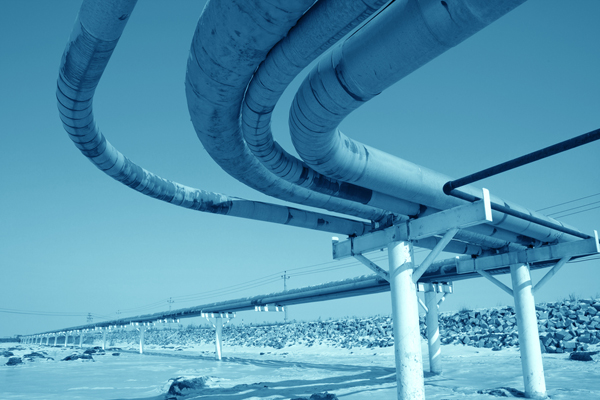British Columbia Auditor General Carol Bellringer raised eyebrows earlier this month when she pointed out that the province has extended more than $1 billion in tax credits to natural gas companies over the past two years.
But amid all the discussion of liquefied natural gas tax rates, industry tax credits and potential gas revenues, one figure is conspicuously absent. "Government take" is a key consideration for industry in any investment decision. How much of the profit from the sale of natural gas does a government take?
Unfortunately, the B.C. Ministry of Natural Gas Development could not provide the provincial revenues as a percentage of the net revenues from gas sales. So we asked the current leader in natural gas production in Canada. But Alberta Energy couldn’t provide that figure, either.
However, a 2009 report prepared for Alberta Energy by PriceWaterhouseCoopers did look at fiscal regimes around the world. It compared the total "government take," as well as political climate, geography, ease of extraction and other factors.
The report found that the U.S., the Middle East, China, Indonesia, Kazakhstan, Norway and Russia all had a higher government take than Alberta.
Canada's 'take' is low
A 2010 report by consulting firm IHS Cambridge Energy Research Associates for Noble Energy echoed those results. It determined that Canada had the lowest government take of Ireland, Italy, New Zealand, the United States, Ghana, United Kingdom, Tunisia, Australia, Egypt, Norway, Libya, and Israel.
It also noted, however, that recent efforts by Alaska, Alberta, Russia and Nigeria to increase their percentage of natural gas revenue resulted in immediate reductions in investment.
Marc Lee, a senior economist with Canadian Centre for Policy Alternatives and the co-director of the Climate Justice Project, said the B.C. regime is not intended to maximize the return for British Columbians, who own the resource. ''It's designed to share risk with the private sector in developing that resource,'' he said.
Lee said very little of the price of LNG in Asia will come back to British Columbians. ''If I sold your car for you and I sold it for $10,000, what share would be fair for you to get?
''How about $50? That's kind of what the B.C. regime looks like.''
In June 2011, a report by the New West Partnership (the economic agreement between B.C., Alberta and Saskatchewan) compared oil and gas fiscal regimes across Western Canada.
The report found that B.C.'s royalty rates range between 12 and 27 per cent, before tax credits. Alberta's rate is as low as five per cent, depending on production levels and price.
Comparing royalty findings, the report noted:
-
British Columbia
Total direct government revenue from oil and gas was $1.401 billion in 2013/14: $794.2 million for the auction of Crown subsurface petroleum and natural gas rights, $543.2 million in oil and gas royalties (primarily natural gas) and $63.9 million in fees and rentals.
For wells drilled after June 1998, royalties are between 12 per cent and 27 per cent, depending on the price.
For wells drilled before June 1, 1998, royalties are between 15 per cent and 25 per cent.
More than 90 per cent of producers accessed a royalty credit program -- 105 of 116 companies in 2012/2013 -- for either low productivity, marginal or deep wells, an infrastructure credit, or deductions for high-risk or high-cost developments.
Alberta
In 2013/14, Alberta collected $1.1 billion in natural gas and by-product royalties.
There is a minimum five per cent and a maximum 36 per cent royalty rate for natural gas, depending on price and production levels.
Alberta offers similar royalty credit programs to British Columbia, including for deep shale gas wells.
Saskatchewan
For wells drilled prior to October 2002, royalty rates range from 20 per cent of the first $35 of the price and 45 per cent of the remaining to 15 per cent of the first $50 and 35 per cent of the rest.
Gas from wells drilled since October 2002, the royalty formula retains five per cent of the first $50 and 30 per cent of the rest.
Manitoba
Manitoba takes 12.5 per cent of monthly sales. The province does not offer royalty credit programs on natural gas.
Federal government
Ottawa collects royalties from oil and gas producers in Nunavut, N.W.T., and from reserve lands.
Royalty consists of one per cent on gross revenue at start-up, increasing by one per cent every 18 production months to a maximum of five per cent or until payout is reached. After payout, the royalty is calculated as the greater of 30 per cent of net profit or five per cent of gross revenues.
Royalty regimes are a delicate balance. Too high, and investors choose other jurisdictions. Too low, and the Crown loses out on revenues for a non-renewable natural resource.
When he announced $120 million in infrastructure royalty credits earlier this fall, B.C. Natural Gas Minister Rich Coleman said such incentives attract investment.
There are currently 18 liquefied natural gas proposals at various stages of development in B.C. If five plants are constructed by 2024, it would result in a total projected investment of $175 billion, he said, creating long-term jobs in the north. ![]()
Read more: Energy















Tyee Commenting Guidelines
Comments that violate guidelines risk being deleted, and violations may result in a temporary or permanent user ban. Maintain the spirit of good conversation to stay in the discussion.
*Please note The Tyee is not a forum for spreading misinformation about COVID-19, denying its existence or minimizing its risk to public health.
Do:
Do not: